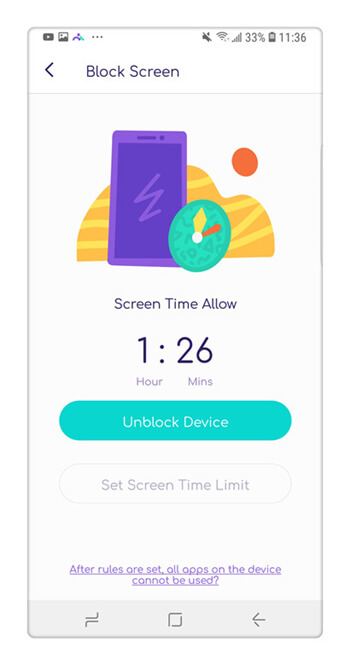Social Media and Mental Health – Know Your Kids More
Social Media and kids' Mental Health
ALL TOPICS
- Parent Monitoring Tips
- Monitoring Apps
- Social Media Parental Control
Sep 11, 2024 Filed to: Health & Education Proven solutions
Today, adolescents and young adults are joining social media in droves. In fact, research says that up to 45% of adolescents are using social media "almost constantly." While social media benefits cannot be underestimated whatsoever, overreliance on it can have detrimental effects on your mental health. So, let's delve in and look at the relationship between social media and mental health. We'll also see how it negatively affects teens.

Does Social Media Affect Mental Health?
Social media can be beneficial in many ways. First and foremost, social media is an excellent way of fostering easier communication. That's vital, especially when it comes to business brands. Teens and young adults can also benefit from social media by keeping up with the latest trends. However, excessive use of anything, including social media, can harm your mental health.
According to a 2019 study of 6,500 12-15-year olds, it was concluded that those who spend three-plus hours a day on social media risk suffering mental health problems. Another 2019 study of 12,000 13-16-year olds found that teens using social media channels more than three times per day had poor mental health.
Worst of all, experts suggest that teens are at more risk of posting highly personal stories or intimate photos because of their impulsive nature. As a result, they can be harassed, bullied, or even blackmailed. So generally, excessive social media use is bad for your teen's health.
Social Media and Mental Health of Teens
So, let's jump in and discuss the negative side effects of excessive social media use.
1. FOMO (Fear of Missing Out)
There's no denying that FOMO has been a nuisance to both teens and adults even before the coming of social media. However, social media channels such as Instagram and Facebook have accelerated the FOMO feeling than before. The idea that others live better lives or have more fun than you can negatively affect your self-esteem. This can trigger emotions like anxiety and depression.
With FOMO, you will pick up your device every few seconds to check for social media updates or respond to comments. That can be catastrophic if you're on the road driving, biking, or even jogging. In short, you will start prioritizing social media life over real-world interaction.
2. Communication Issues
Although social media is an excellent communication channel, it can't replace the importance of face-to-face communication. For example, you can't hear a person's tone of voice or see their facial expression on social media. This, in return, can result in misunderstandings, especially when you're trying to be sarcastic or funny.

Today, most teens spend a chunk of their time online checking likes and statuses. However, they forget that real-life interaction with people is equally important. For this reason, dating relationships and friendships can suffer as a result of social media dependence. Teens obsessed with social media will always look to impress the online audience rather than focus on having fun.
3. Depression and Anxiety
Studies show that excessive use of social media can result in depression and anxiety. However, researchers are not yet sure how social media can lead to depression. Most of them conclude that social media can lead to loneliness and a decrease in social activity. Teens often invest lots of their emotions in social media, making them feel the pressure to impress online. They may feel obligated to post Oscar Award-winning photos and well-articulated posts.

Also, if teens, especially girls, commit a blunder online, they might become too anxious. They might begin worrying about what other people will say and think of them. Then factor in other shameful online behaviors like slut-shaming and cyberbullying, and you'll conclude that social media can lead to depression and anxiety a great deal.
4. Lack of Sleep
If you've never been a victim of sleep deprivation due to excessive social media use, then you should thank your stars. That's because sleep deprivation is one of the most common adverse social media effects. It cuts across adults and young people in equal measure.

According to a UK study called Sleepless in School, teenagers, specifically college students, reported reduced bedtime rest due to social media use. That include frequently checking social media at night and early in the morning. The research then concluded that those who wake up at night to check social media are 3x likely to feel tired at school. It also added that young girls were more likely to wake up and check social media at night than boys.
5. Memory
Using social media is an excellent way of recounting past events and keeping fond memories. It is, in fact, one of the best ways to look back at what you posted five years ago and make conclusions about yourself. Sadly, social media can interfere with how teenagers remember specific tidbits from their lives. Teens are guilty of spending most of their time trying to impress online. However, they sacrifice the enjoyable aspects or real-life experience. In other words, spending too much time on social media can make you forget other social aspects of life.

What Can Parents Do?
Teenagers need adequate education and support to develop social media management skills. There are multiple solutions you can employ to teach your child how to use social media responsibly. Consider the following suggestions:
1. Communicate
As a parent, communication between you and your child is key to their overall development. So, constant communication with your child should be your first line of defense against social media abuse. Firstly, you have to act friendly and avoid mean behaviors towards them. Treat them with respect before making it clear that you expect the same from them when interacting with others in real-life or social media.

Also, remind them to post decent social media posts and think twice before posting or commenting on anything. For instance, dissuade them from publishing their home address as this might be precisely what robbers are looking for. You can also go through their favorite social media channel's T&C together and let them understand the rules. Another thing, never "friend" strangers on social media.
2. Be a Role Model
Parents have to lead from the front to win the war against social media abuse. You don't expect your child to act responsibly on social media when you're misbehaving yourself. That said, you can start by limiting when and where to use social media. Don't keep checking your social media accounts during mealtime and expect your child to do the opposite. You should also be mindful of what you post and who to follow. Wherever possible, your online interactions should focus on the people you know in real life.

3. Keep Checking In:
Don't just set social media rules and then vanish, assuming that all is well. Because your child needs guidance, you should monitor their social media accounts from time to time. For instance, you can conduct regular spot checks. In this case, both of you should go through their social media posts and DM (Direct Messages).
Alternatively, use parental control apps such as FamiSafe to have total control over your child's social media life. With this parental control app, you only need to install a copy in your child's device to monitor their online movements. You can install it on their iPhone, iPad, Android, or FireOS devices.
- Web Filter & SafeSearch
- Screen Time Limit & Schedule
- Location Tracking & Driving Report
- App Blocker & App Activity Tracker
- YouTube History Monitor & Video Blocker
- Social Media Texts & Porn Images Alerts
- Works on Mac, Windows, Android, iOS, Kindle Fire
Below is how FamiSafe will help you control your child's social media use:
1. Set screen time:
With the Screen Time feature, parents can track their children's daily app usage and know which apps can be addictive. For example, if they spend most of their nights on Facebook, you can block the app's screen at night by setting a screen time limit. This way, your child won't access the app at night and sleep soundly.

2. Monitor suspicious text:
You can also use this parental control app to keep an eye on your kids' social media DMs. Here, you only need to connect the app to their social media accounts and keep track of incoming and outgoing texts. To do that, manually add suspicious keywords or monitor contents by categories like drugs, violence, alcohol, gambling, etc.
3. Get activity report:
Nothing beats the convenience of getting your child's phone activity report from the comfort of your mobile device. You can easily detect your child's app usage by hours or minutes used. You can also get activity reports by date. This should help you narrow down on the most addictive apps on your child's device.

Excessive social media use can be just as addictive as substance abuse to teenagers and young adults. It can leave long-lasting mental issues to your child that can affect their overall performance at school and at home. But with the tips above, you can vanquish this problem and let your child enjoy online and real-life interaction without any adverse effects. And most importantly, always remember that communication is vital.


Moly Swift
staff Editor